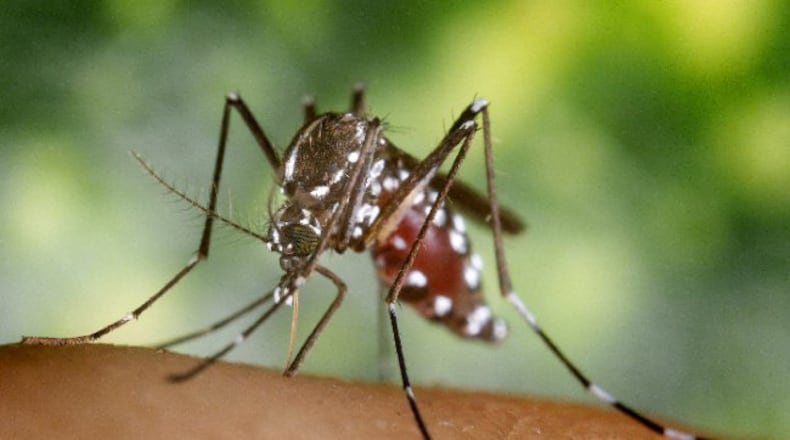Portions of the following streets will be treated: Marshall Road between Limberlost Trail and Stone Lake Townhomes, Terrace Park Drive, Nicolet Lane, Hithergreen Drive, Overhill Lane, Limberlost Trail and Stone Lake Townhomes.
“Public Health routinely collects mosquito samples throughout the season,” Public Health spokesman Dan Suffoletto told this news outlet today. “We send those samples to the Ohio Department of Health to test the mosquitoes and to see if any are capable of transmitting West Nile virus. In this case, it was determined that mosquitoes collected in that area tested positive for West Nile.
“We have a contract with the city of Centerville to provide spraying services, so that is why the spraying is being done.”
West Nile virus, or WNV, is the leading cause of mosquito-borne disease in the continental United States, according to Centers for Disease Control and Prevention.
The pesticide has been evaluated and approved by the Environmental Protection Agency for this use and found to pose minimal risks to human health and the environment, according to the city Centerville. Although the pesticide poses low risks, some people may prefer to avoid or further minimize exposure. These people may choose to close windows and turn off window air conditioners during spraying and/or stay indoors for 30 minutes after spraying.
For further information on Public Health’s mosquito surveillance and control activities, please call (937) 224-8793 or click here.
“Most people get infected with West Nile virus by the bite of an infected mosquito,” Public Health said on its website. “Mosquitoes become infected when they feed on infected birds. Infected mosquitoes can then spread the virus to humans and other animals. In a very small number of cases, West Nile virus has been spread through blood transfusions, organ transplants, and from mother to baby during pregnancy, delivery, or breastfeeding.”
Cases of WNV occur during mosquito season, which starts in the summer and continues through fall.
“Currently there is no West Nile virus vaccine available for people,” Public Health said. “Many scientists are working on this issue, and there is hope that a vaccine will become available in the future.”
The West Nile incubation period is usually 2 to 6 days but ranges from 2 to 14 days, according to Public Health. That period can be longer in people with certain medical conditions that affect the immune system.
Most people infected with WNV do not feel sick, according to the city. About 1 in 5 people who are infected develop a fever and other symptoms. About 1 out of 150 infected people develop a serious, sometimes fatal, illness. You can reduce your risk of WNV by using insect repellent and wearing long-sleeved shirts and long pants to prevent mosquito bites.
How to Protect Yourself from West Nile
- Use EPA-approved mosquito repellent such as DEET, and follow the label directions.
- If you are outdoors between dusk and dawn when mosquitoes are most active, be sure to wear long pants, a long-sleeved shirt, shoes and socks.
- Wear light-colored clothing, which is less attractive to mosquitoes.
- Install or repair screens on windows and doors to keep mosquitoes out of your home.
- Make sure all roof gutters are clean and draining properly.
- Eliminate standing water in your yard as well as from flower pots, buckets and barrels. Change the water in pet dishes and replace the water in bird baths weekly. Drill holes in tire swings so water drains out. Keep children’s wading pools empty and on their sides when they aren’t being used.
Source: City of Centerville
About the Author

